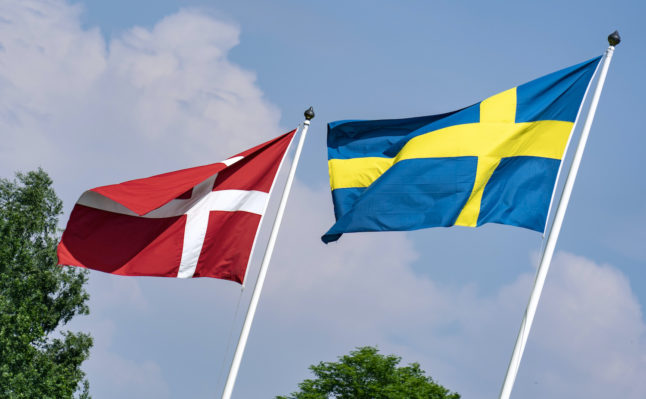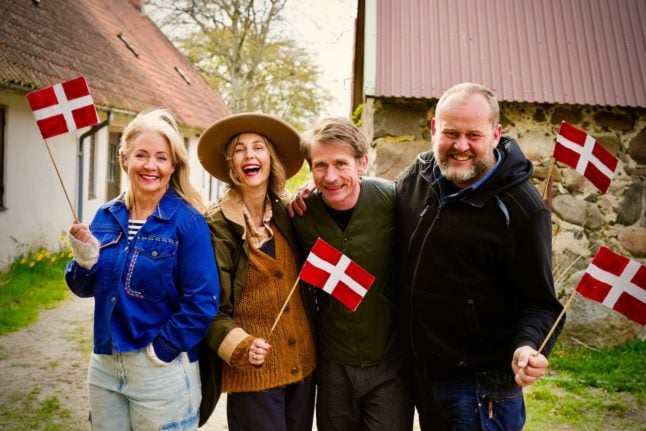I hold up my phone expectantly as the cheery pensioner at the door of the St Pauli Church in Malmö takes aim at the QR code, only to be confronted by a big red cross and the words ej godkänd, “not valid”.
Failed in the first attempt. It transpires that my vaccine certificate, downloaded for a trip to Denmark over the summer, has expired. After a few minutes’ fumbling on the Covidbevis.se website, I’ve downloaded a fresh one and am allowed to enter.
But I’m not the only one with problems.
It’s the Lucia concert for my daughter’s choir, an event for which they’ve been practising since the summer. Perhaps two hundred parents and relatives have come to see the children’s big performance of the year.
READ ALSO:
First comes Isaac, the Ghanaian father of one of my daughter’s best friends. He is double vaccinated but has no idea how to get a vaccine certificate, so I take his phone, ask for his personnummer, make him type in his BankID, and it’s sorted.
It’s a similar story with Rose, the Cameroonian mother of my daughter’s other friends. She tries at first to use the vaccine record in her journal on 1177.se, Sweden’s primary care health website. Again, I take her phone and get her a certificate.
It’s then the trouble starts.
Isaac’s 18-year-old eldest daughter arrives. She’s only been in Sweden five months, is double vaccinated, and has a Swedish social security number – personnummer, or personal number. But she has yet to open a bank account, which means she cannot get a BankID, and this means she can’t download a Covid pass online. She could get a FrejaID, but not at such short notice.
It is possible to apply for a vaccine pass by post if you have a personnummer but don’t have BankID, but the waiting times for a paper pass are currently several weeks long. Sweden introduced vaccine passes at large public events on December 1st, with two weeks’ notice.
I plead with the pensioner at the door and the two women who run the choir, but there’s no mercy.
Next Rose’s Swedish husband arrives with his 99-year-old mother. Although she lives quite happily by herself and is still relatively sharp, she was 81 at the time BankID was introduced in 2003, so she can be forgiven for never having managed to get hold of one.
She had tried to find the paper certificates she had been given when vaccinated, but to no avail. Again, there’s no mercy from the people at the door (this is Sweden). In the end, she waits in the car outside with her grandson while the rest of the family goes in without them.
Arguably, these are problems with BankID, rather than with Sweden’s vaccination pass system. No one who was turned away from Monday’s Lucia concert was among the thousands of fully vaccinated people who cannot get a vaccine pass because they only had a temporary reservnummer (reserve number) at the time they were vaccinated, or because they were vaccinated abroad.
What the vaccination pass has meant is that those without a BankID can now be barred from actual physical public events, not just online services. In the case of Rose’s 99-year-old mother-in-law, that might mean missing one of the last chances of seeing her grandchild sing Lucia.
The concert itself was wonderful, the children’s voices reverberating around the high, open space of one of Malmö’s finest churches. It just seems a shame some people couldn’t be there.





 Please whitelist us to continue reading.
Please whitelist us to continue reading.
People should not accept this overreach by the government.
Initially measures were introduced to save the elderly – now we see that the elderly are being punished for formalities. And as we all know, the vaccine doesn’t protect from getting infected, so the introduction of these passes seems bizarre at best.
The passes are fitting in my view…….their logistic totally weird however. No way elderlies should be treated like that.
I don’t think it’s lack of “mercy”, I applaud that those checking follow the rules. While you can get and give Covid while vaccinated the latest studies show it is many, many times less likely. Since the elderly are still a risk group it’s fitting that they are under scrutiny, it’s better to not be admitted than to face serious illness or death.
Would you please share your sources for “the latest studies show it is many, many times less likely” (to get and transmit Covid when vaccinated)? Because I can’t find them. Everyone repeats that but these are not facts. At best the vaccine moderately reduces transmission, but the exact numbers are not known or shared.
It makes no sense to only allow vaccinated people to meet. It contributes to spreading of the virus too, including to unvaccinated people in different settings.
And why can’t the elderly (or anyone else for that matter) decide for themselves what they can do, and what risk they are willing to take?
Would you be utterly upset if I labelled your comment…..pathetic ? No apology however.
As much as I love Sweden, this system is beyond weird.
Here in France….I walked out of the vaccination center and my certificate was already in my social security vault as well as on my phone.
Soooooo many things we got wrong….but at least this one right.
No way elderlies would be left freezing their venerable rear ends is a car while the Lucia concert is going on.
If the vaccine was at best pathetic at protecting you from Delta, taking the vaccine now with Omicron is like taking a flu shot from 5 years ago. Completely useless.
Rendering the vaccine pass only useful for tracking your every movement, and creating further separation in Swedish society. Everyone in this country is so scared of being seen as a racist or sexist, but are completely ok with medical apartheid?